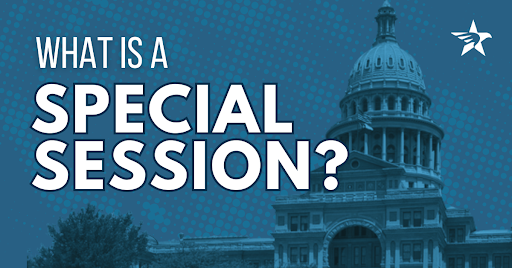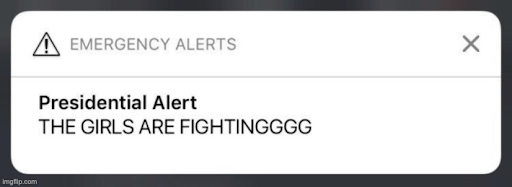The 88th Texas Legislative Session adjourned, or ended, on Monday, May 29. So… we’re done here, right? Everyone gets to go home until 2025?
Nope. The same day the session adjourned, Gov. Greg Abbott called for an immediate 30-day special session around property taxes and immigration that began promptly that night… and then another one after that when legislators couldn’t reach a compromise on property taxes.
And on Monday, Oct. 9, the Texas Legislature will report back to the Capitol for a third special session — while he hasn’t made it official, Abbott has stated multiple times that it’ll be around his school voucher scheme. To stay up to date on the upcoming special session, sign up for alerts at our Lege Action Center.
So what is a special session?
In a legislature, a special session is a period when the body convenes outside of the regular legislative session. A legislature has a set number of days in a regular session to propose, debate, and pass bills to send to the governor. If a bill does not pass before the end of the session, it “dies,” and legislators have to wait until the following legislative session to reintroduce it… unless the governor calls a special session and puts it on the agenda.
If the governor calls a special session, legislators are expected to be present for previously unscheduled days to pass legislation the governor deems “high priority.” Special sessions are often called for issues like school finance, state agency reform, or redistricting.
Whether or not to call a special session is always up to the governor’s discretion unless the House and Senate fail to pass a budget. In that case, a special session is mandatory.
To summarize, the governor calls a special session when they feel the legislature has unfinished business.
Are the rules any different during a special session?
The short answer is no, at least when it comes to the lawmaking process.
A special session can only last up to 30 days, but if the governor is not satisfied at the end of the 30 days, they can call another session. And another, and another. So, theoretically, the governor could keep legislators in the Capitol until the next regular session.
Can the governor really do that?
Yep. The governor can call a special session anytime, without any warning, as many times as they want. They can use this to their advantage, holding the legislature hostage to their agenda and forcing them to return to work if the Senate and House do not pass the governor’s priority during the regular session.
Not-so-fun fact: Former Gov. Bill Clements kept the houses in for a whopping six special sessions spanning just under a year in 1989. Gov. Abbott has threatened to pull a Clements this year, warning he’ll call a near-endless string of drawn-out 30-day special sessions, topic by topic, until he gets his way on his bills.
Does anyone else besides the governor have the power to call a special session?
Nope. Gov. Abbott is in charge, and he’s not afraid to say it; thank you very much. In 2021, Lt. Gov. Dan Patrick requested consideration for a special session, and Abbott wasn’t pleased.
Abbott proclaimed, “Not only am I the only one with the authority to call a special session, I get to decide when, and I get to decide what will be on that special session. And here’s what I would do if anybody tries to force this… the only thing I will put on there are things that I want passed. Second, we’re going to go one item at a time. There will be one item placed on the agenda. Not until they pass that item will we move on to another item.”
[Grabs popcorn 🍿] Geez, these grown men sure are dramatic.
We couldn’t agree more. In the first few days of the first special session, there was some serious bickering between the governor, House Speaker Dade Phelan, and Lt. Gov. Dan Patrick over property taxes. And yes… the bickering continues. It’s wild out here.
How common are special sessions in Texas?
More common than not, actually. Here’s a list of Texas’ legislative sessions — “C.S.” stands for “Called Sessions” AKA special sessions. Gov. Abbott has called at least one special session for three of the five sessions he’s been in office.
Remember Wendy Davis’ 11-hour filibuster against abortion restrictions in 2013? That happened during a special session called by then-governor Rick Perry.
What are we expecting with the special session(s) this year?
While Abbott can add any topic to a special session, we’re for sure expecting to see a bill around school vouchers. He’s already stated in a recent tele-town hall: “If we do not win in that first special session, we will have another special special session and we’ll come back again.” He’s promised to order a special election if he doesn’t get what he wants.
That’s why we have to keep on our watchdog hats. The regular legislative session may be over, but our fight continues, and we will keep advocating for our freedoms for ALL the special sessions or elections the governor calls. Visit our Lege Action Center to stay updated and get involved!



